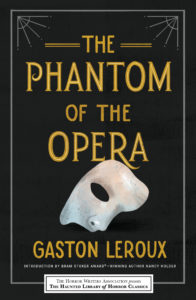 Awards are not the end-all and be-all, but they do have meaning: libraries make purchases based on lists of award winners and recommended titles, and so do readers. When a well-regarded organization hands out an award, there is a ripple where often that book, or movie, or theater production, will also be held in high regard and rise to the top. It might even stay there decades later, after it has become dated or recognized as problematic (true of a number of early Newbery and Caldecott winners).
Awards are not the end-all and be-all, but they do have meaning: libraries make purchases based on lists of award winners and recommended titles, and so do readers. When a well-regarded organization hands out an award, there is a ripple where often that book, or movie, or theater production, will also be held in high regard and rise to the top. It might even stay there decades later, after it has become dated or recognized as problematic (true of a number of early Newbery and Caldecott winners).
Many award-granting institutions have undergone upheavals in the past dozen years or so: debate over the World Fantasy Award Fantasy Award, the Sad Puppies fiasco that attempted to taint the Hugo Awards, the renaming of the Laura Ingalls Wilder Award, the recent cancelling of the RITA Awards. There has also been a more obvious scrutiny of the Oscars, starting with the #OscarsSoWhite hashtag. Any hope that public criticism of the Oscars’ lack of diversity would have an impact on judges’ considerations was dashed this year as the Oscars failed to nominate any woman for Best Director, just three nominations for artists of color, and, despite acclaim for both Us and Midsommar, zero nominations from the horror genre (I’m also baffled that Frozen 2 didn’t get a nomination for Best Animated Feature: it is a gorgeous film).
I haven’t felt like the Oscars were worth my attention for years, but with Joker, The Irishman, 1917, and Once Upon a Time in Hollywood racking up the nominations even I couldn’t escape the blinding whiteness and maleness of the slate. It has to make you question, are Martin Scorsese and Quentin Tarantino really the only directors capable of making an Oscar-worthy movie? I know women and people of color are making great movies, and that there are outstanding horror movies that deserve a look. There are stories out there being told from a fresh point of view that deserve to be seen and heard.
Author Stephen King is a judge, and decided this was the time to put himself out there and tell us:
…I would never consider diversity in matters of art. Only quality. It seems to me that to do otherwise would be wrong.
— Stephen King (@StephenKing) January 14, 2020
I guess now that he’s won the Distinguished Contribution to American Letters, he’s become on authority on what makes quality art. Which is apparently not diversity? Twitter does not seem to agree.
He later backtracked a little, saying everyone deserves “a fair shot”, whatever that means (marginalized people start with less than a fair shot so..?). Here we’ve got an old white guy (he comes within a day of sharing a birthday with my mom, who is in her seventies) who has locked down the bestseller lists for decades. There can’t be too many people who haven’t heard of Stephen King, read one of his books, or watched a movie adaptation. At this point in his life, could he identify a fair shot if it walked up to him and tapped him on the nose? How many promising writers could have “New York Bestselling Author” on the cover of their books if King didn’t have a permanent place there?
Stephen King is positioned in publishing in a way that he could make a big difference in making available quality work from diverse and #OwnVoices creators, maybe not so much in the movies, but definitely in fiction. My background is mostly as a K-12 librarian, and maybe you aren’t familiar with the authors for that age group, but one of the big names is Rick Riordan, who gained his recognition writing contemporary fantasy with kids who discover they are demigods from various world mythologies. Riordan was able to use his privilege as a popular, bestselling, writer to start a publishing imprint with the specific mission of finding #OwnVoices authors who have stories to tell grounded in their own mythologies and legends. Riordan is a name, but he certainly isn’t in Stephen King’s league when it comes to name recognition, number of books written, or number of copies sold. For King to say he would never consider diversity, but only quality, is a blind spot I hope is rectified by the reaction to his tweet. Because he has the ability to find and promote #OwnVoices creators in a way that most writers do not. And it would be wonderful if he did.







Follow Us!